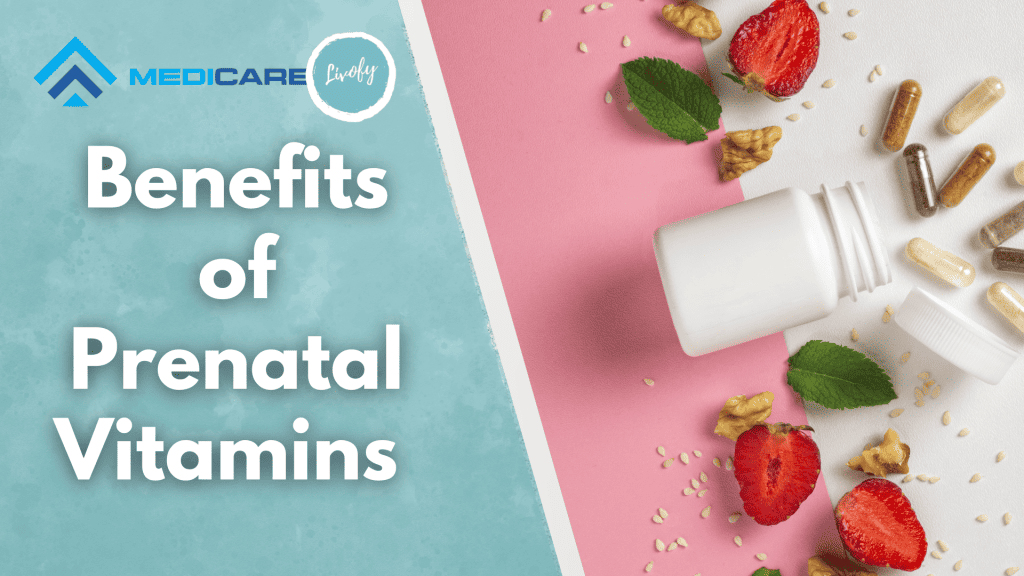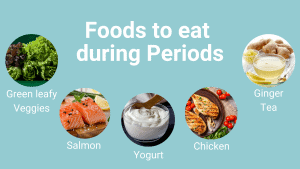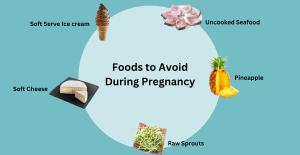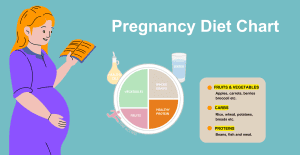A balanced diet that includes fruits, dairy, leafy greens mostly covers for our daily requirements of vitamins and minerals. However, during pregnancy, a woman’s vitamin needs increase to support fetal growth and maternal health which can be supported through prenatal vitamins. They provide essential nutrients like folic acid, iron, calcium, vitamin D, and omega-3 fatty acids, which are vital for brain development, bone strength, and immune function. Ideally, prenatal vitamins should be taken at least three months before conception or as soon as pregnancy is confirmed. While natural and synthetic options are available, consulting a healthcare professional ensures the best choice. Though side effects like nausea and constipation may occur, they can be managed with simple adjustments. Continue reading to have a detailed idea of prenatal vitamins.
Why are Prenatal Vitamins important?
The vitamin requirements of a pregnant woman differ significantly from those of a regular individual due to the increased nutritional demands of supporting fetal growth and maintaining maternal health. For instance, the need for folic acid rises to 400-800 mcg/day to prevent neural tube defects, compared to 400 mcg/day for non-pregnant individuals. Iron intake increases to 27 mg/day to support expanded blood volume and prevent anemia, whereas regular individuals need 18 mg/day. Although calcium needs remain 1000 mg/day, it becomes more crucial during pregnancy for fetal bone development. Vitamin D requirements stay at 600 IU/day but are vital for calcium absorption and the baby’s skeletal growth. Iodine needs to rise to 220 mcg/day to support thyroid function and fetal brain development, compared to 150 mcg/day for others. Additionally, choline intake should be 450 mg/day during pregnancy to aid brain and spinal cord formation, while non-pregnant individuals require 425 mg/day. These increased requirements highlight the importance of a nutrient-rich diet and prenatal vitamins to ensure both maternal well-being and healthy fetal development.
Understanding significance of each Prenatal Vitamins
A healthy pregnancy is key to a child’s optimal development and diet plays a significant role in assuring the same. Below mentioned are the specific roles that each nutrient plays throughout the period from conceiving to gestation.
1. Folic Acid
Folic acid is undeniably one of the most important prenatal vitamins as it is substantial in preventing the defect of neural tubes in babies. Its doses are recommended as 400 micrograms each day while attempting to conceive and continue till the first trimester of pregnancy. Green leafy vegetables which contain folate, breakfast cereals and fat spreads with folic acid are some of the dietary necessities which can be incorporated. However, diet alone can not suffice the portion and thus folic acid supplements are recommended.
2. Iron
Lack of iron is linked with feeling of fatigue all day and the common cause of anemia, both of which can pose significant threat to the foetal development. Iron assists your body in making blood to supply oxygen to the foetus. Consider including lean meat, green leafy vegetables, dried fruit, and nuts in your diet considerably as they are rich sources of iron. However, if your haemoglobin levels are lower than normal, you can resort to iron supplements after doctor’s recommendations.
3. Calcium
Calcium is vital for strong bones and teeth of your baby, deficiency of the same can lead to the fetus retreating to the mother’s share of calcium, causing bone weakening in both mother and the child alike. To boost your calcium intake,include milk, cheese, and yogurt, green leafy vegetables, soya drinks with added calcium and other fortified foods that are rich in calcium.
4. Vitamin D
Vitamin D is essential for maternity care as it supports calcium absorption, promoting strong bones and teeth in both the mother and baby. It helps reduce the risk of pregnancy complications like preeclampsia and gestational diabetes. Adequate vitamin D levels also support the baby’s immune system and healthy growth. Pregnant women are advised to consume 600 IU/day through sunlight, fortified foods, or supplements to meet increased demands.
5. Omega – 3
Omega-3 fatty acids, particularly DHA and EPA, are crucial during pregnancy for the baby’s brain and eye development. They also support maternal heart health, reduce inflammation, and may lower the risk of preterm birth. Pregnant women should aim for 200-300 mg/day of DHA. Rich sources include fatty fish (like salmon, sardines, and mackerel), flaxseeds, chia seeds, walnuts, and fortified eggs. Omega-3 supplements, especially algae-based ones, are a safe alternative for those who avoid seafood.
When to take Prenatal Vitamins?
The stepping stones for a healthy life are laid before being pregnant, during the time of conception itself. This helps in building ample nutrient reserves in the mother’s body for optimal foetal development during the initial stage of pregnancy.
- Before Conception: Start taking prenatal vitamins at least three months before pregnancy to prepare your body and support early fetal development.
- During Pregnancy: Continue throughout pregnancy to meet increased nutritional demands and promote the baby’s growth.
- Postpartum & Breastfeeding: Keep taking them after delivery, especially while breastfeeding, to replenish nutrients and support infant health.
- Best Time of Day: Take prenatal vitamins with a meal (preferably breakfast or dinner) to enhance absorption and reduce nausea.
- Staying Consistent: Take them daily at the same time for maximum benefit and to maintain steady nutrient levels.
How to choose the right Prenatal Vitamin?
Choosing the right prenatal vitamins is crucial for supporting both maternal health and fetal development. With so many options available, it’s important to select a supplement that meets your nutritional needs during pregnancy.
1. Look for Essential Nutrients
Ensure the prenatal vitamin includes key nutrients like Folic acid, Iron, Calcium
Vitamin D, Iodine and DHA.
2. Check for Bioavailability
Choose vitamins with methylated folate (L-methylfolate) instead of folic acid if you have the MTHFR gene mutation, as it is easier for your body to absorb.
3. Avoid Harmful Additives
Steer clear of vitamins with artificial colors, preservatives, or excess fillers which can cause digestive issues or allergic reactions.
4. Doctor’s Recommendation
Consult your OB-GYN or healthcare provider to personalize the supplement based on your health, dietary intake, and pregnancy stage.
Tips to take Prenatal Vitamins
Taking prenatal vitamins correctly can maximize their benefits and help you feel your best during pregnancy and assist in foetal development.
1. Take with Food
Consume prenatal vitamins with a meal or snack to reduce nausea and improve nutrient absorption, especially for iron and fat-soluble vitamins like A, D, E, and K.
2. Choose the Right Time
If your vitamin causes morning sickness, try taking it at night or before bed to ease discomfort.
3. Split the Dose
If the pill feels too large or causes side effects, ask your doctor if you can split the dose throughout the day for easier digestion.
4. Stay Consistent
Make prenatal vitamins part of your daily routine—set a reminder or pair them with another habit, like brushing your teeth.
5. Hydrate Well
Drink plenty of water when taking vitamins to support digestion and prevent constipation from iron.
Expert Review on Benefits of Prenatal Vitamins
Dr. Eric is an expert nutritionist and he suggests taking prenatal vitamins supplements provide essential nutrients like folic acid, iron, calcium, and DHA, which are vital for fetal development and maternal well-being. Folic acid helps prevent neural tube defects, while iron supports increased blood volume and reduces the risk of anemia. Calcium strengthens fetal bones and teeth, and DHA aids in brain and eye development. Regular intake of prenatal vitamins ensures nutritional gaps are filled, promoting a healthy pregnancy and reducing the risk of complications.
References
“Evidence based recommendations for an optimal prenatal supplement for women in the US: vitamins and related nutrients – Maternal Health, Neonatology and Perinatology.” 2022. Maternal Health, Neonatology and Perinatology. https://mhnpjournal.biomedcentral.com/articles/10.1186/s40748-022-00139-9.
FAQs
1. Why are prenatal vitamins important?
Prenatal vitamins are important for the optimal development of the fetus and the mother.
2. When to start taking prenatal vitamins?
Start taking prenatal vitamins at least 1-3 months before conception or as soon as you know you’re pregnant to support fetal development and maternal health.
3. Can I take prenatal vitamins if I’m not pregnant?
Yes, prenatal vitamins can be taken if you’re planning to conceive or to support overall health, but consult your doctor for long-term use.
4. What should I do if I experience side effects from prenatal vitamins?
If you experience side effects like nausea or constipation, try switching brands or taking them with food, and consult your doctor.









